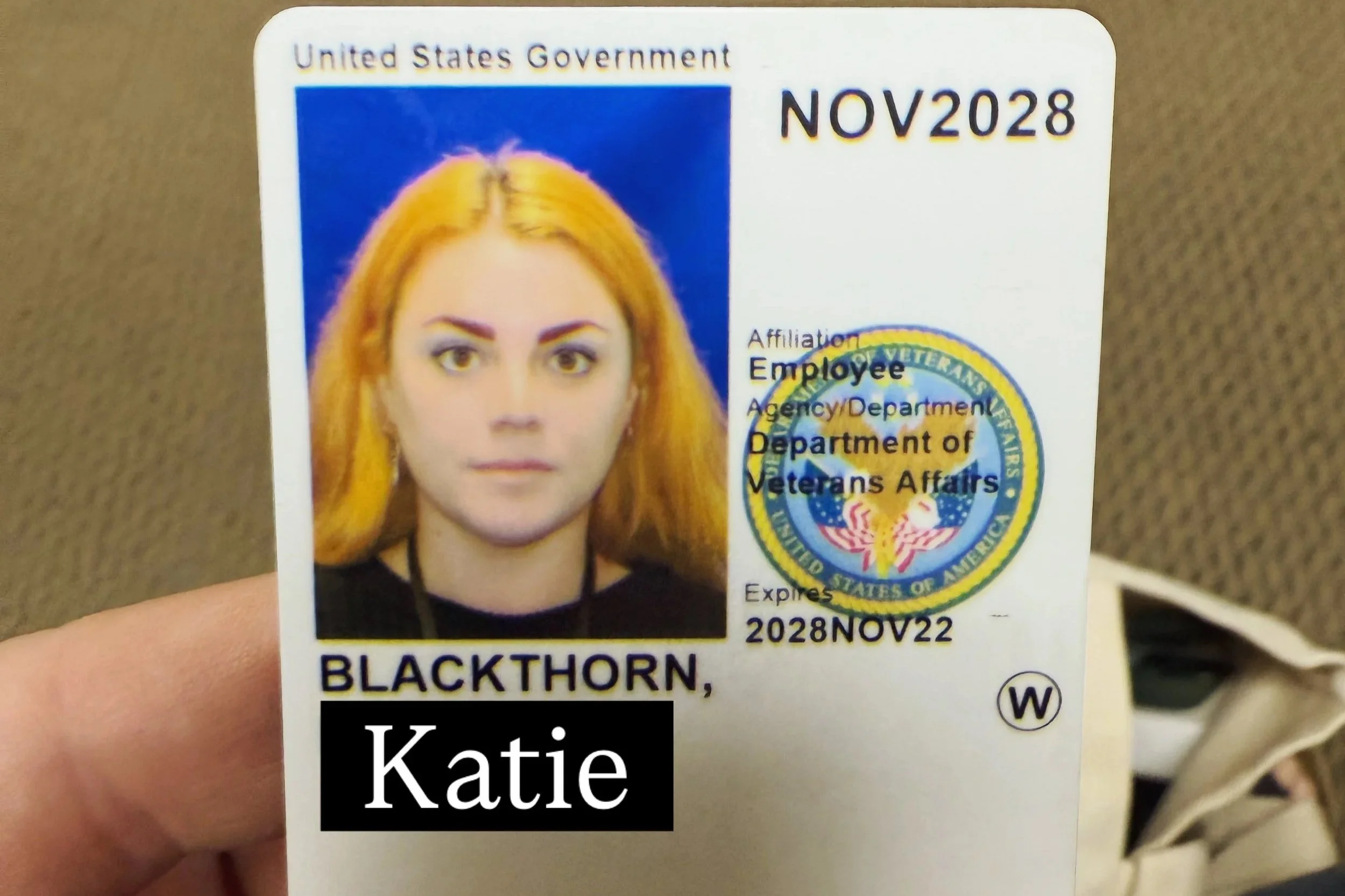Why I Left the VA—and What I Learned About Real Healing for Veterans
From Evidence-Based Therapy to Holistic & Integrative Care: Reflections from a Decade Inside the VA System
At the end of June this year, I sat in a dim government IT building waiting to turn in my VA-issued laptop and snapped one last photo of my badge before handing it over.
Aforementioned government-issued badge complete with government-issued beige carpeting in the background
After ten years of service as a therapist for veterans, I had to step away. Not because I no longer wanted to serve, but because the system itself was making it nearly impossible to provide mental-health care for veterans that aligned with my values and ethics while also protecting my own wellbeing.
From leadership belittling our work and threatening layoffs in an already understaffed system, to tightening diagnostic checkboxes and session limits, I was done. And I was heartbroken—because I knew that, once again, veterans needing therapy and trauma support would pay the price.
This Veterans Day, I found myself reflecting on that decade of service at the VA: Primary Care, Women’s Mental Health, Walk-In Crisis, General Mental Health, and a specialty PTSD Clinical Team. Those years gave me invaluable training and experience, and they also showed me clearly where the system fails to deliver true healing.
I learned how to relate to veterans and gained as much understanding as possible about military culture without having served myself. I was trained in an abundance of evidence-based therapies for PTSD and trauma recovery, including Cognitive Processing Therapy (CPT), Prolonged Exposure Therapy (PE), Written Exposure Therapy (WET), and Dialectical Behavior Therapy (DBT). I also pursued additional training in EMDR outside the VA (they thankfully reimbursed most of it) in order to increase access to this highly requested therapy.
But I also saw the limits of these models when used inside a rigid system. The American medical model of mental health—even within a more socialized system like the VA—often measures progress through numbers, not relationships. It focuses on metrics and medications rather than connection and meaning.
While working within the system, I began to weave in what I now call Wise Woman consultation—holistic and integrative care—for veterans, bringing mindfulness, herbal support suggestions, and somatic practices alongside trauma-focused therapy. I watched migraines improve with both EMDR and feverfew tea. I witnessed lives shift from surviving to truly living. Those moments confirmed that healing cannot be reduced to manuals or medication. It happens through attuned listening, trust, and treating the whole person.
I met veterans from every branch, background, and story—from the most devastating trauma to the most inspiring transformations. I’m deeply grateful to have witnessed them all, and to have shared that healing isn’t about returning to who we were, but becoming who we’re meant to be.
Today I honor the courage of every veteran who reaches out for help, and I honor the part of myself that chose to keep serving in a new way—beyond the system, yet forever shaped by it.
My (currently metaphorical) Wise Woman doorstep is open to any veteran—or any soul—ready for a deeper, more holistic kind of healing.

